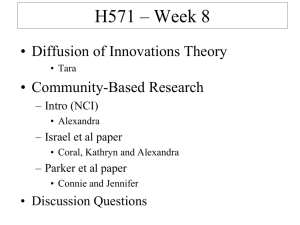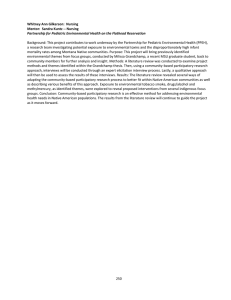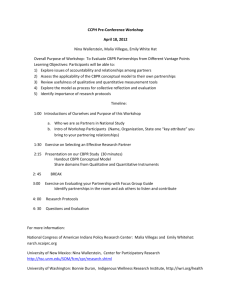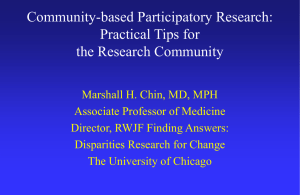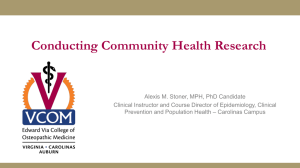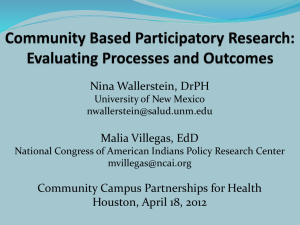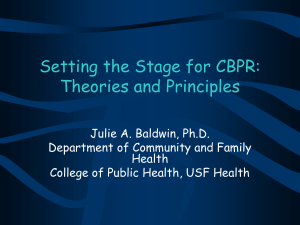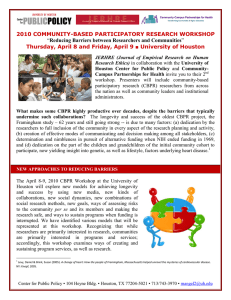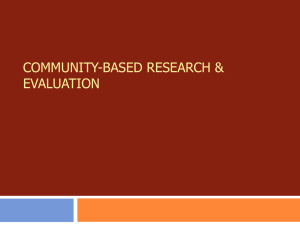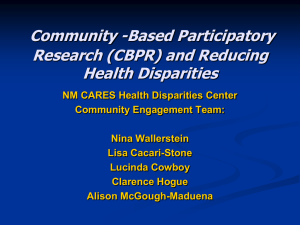Clinical Research4
advertisement
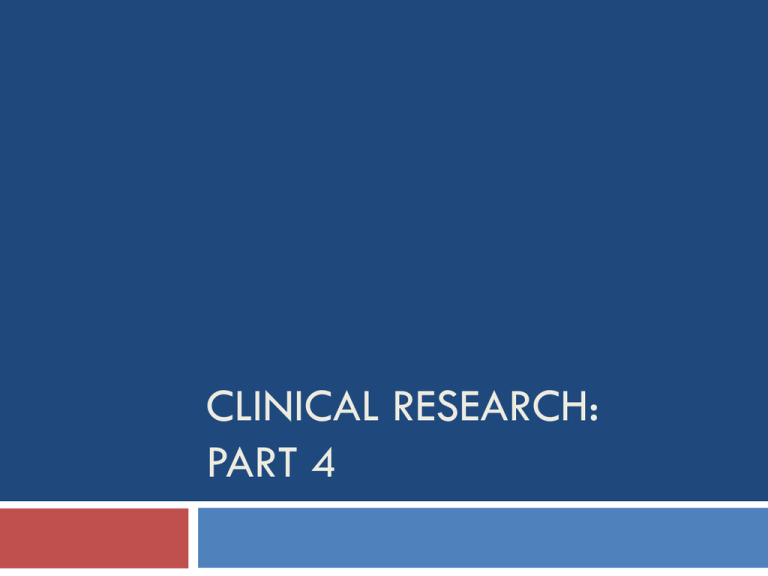
CLINICAL RESEARCH: PART 4 Overview Take home messages CBPR Reminders Food day Course evaluations Take Home Messages of the Course Understand the value of research and experience a greater desire to engage in research in some capacity Understand p-values (anyone with a college degree should know this) Understand what an “experiment” is, how it differs from a non-experiment (it’s in the course title) Gain a greater tolerance for ambiguity Improve scientific writing and statistical skills Understand different methodologies as tools that can improve the quality of research Gain practical skills and accomplishments that can advance your academic and career goals Community-Based Participatory Research An approach to research that involves meaningfully partnering with stakeholders throughout the research process CBPR, like many terms in this course (PCORI, Cohen’s d, translational science, REDCap), should be common knowledge to most researchers but is not Meaning… If you can give it the old college-try, or at least know what it is, you can do better research and experience better academic/occupational success This is the future, e.g., every PCORI study requires this Psychologist Family Physician Administrative Assistant Nurse “Patient” Stakeholder with History of Polysubstance Abuse Family Caregiver of Patient with Liver Disease Medical Sociologist Head of a Local Non-Profit Social Worker Specializing in Substance Treatment Biostatistician Psychologist Brainy Undergrad who just learned about 697 types of reliability and validity, knows the catalogue of 342 social psych biases, can run descriptive statistics in SPSS, has a CV and CITI training, and responds to email twice daily Arnstein’s Ladder of Participation Dimensional Perspective Traditional Research Community-Placed Research Research happening in the community setting, still researcher driven, stakeholders not involved Community-Based Research Researcher driven, problem identified by the researcher, who plans and conducts the research and then analyzes, interprets, and disseminates the results to academic community Research with the community where stakeholders are participating to some degree in the research process Community-Based Participatory Research Research where stakeholders are equal partners in all aspects of the research process Why CBPR? Study questions, measures, and findings will be relevant to people in the real-world (who pay taxes, want the world to be a better place, etc.) Stakeholders can provide specialized expertise that can complement the expertise of the interdisciplinary scientists on the research team
